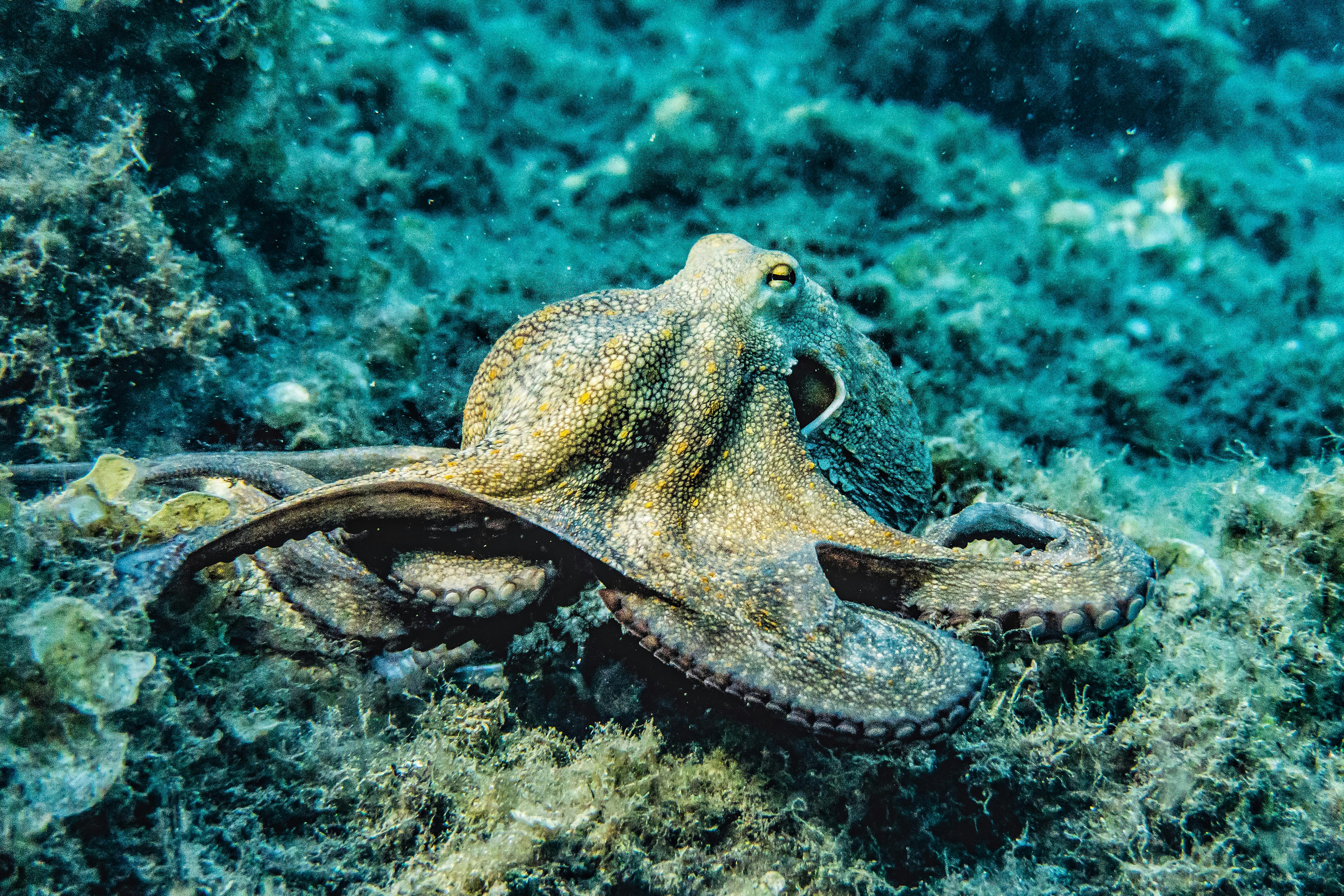The Intriguing World of Octopus Intelligence: A Deep Dive
Our oceans are home to an array of fascinating creatures, but none are quite as enigmatic as the octopus. With their otherworldly appearance and extraordinary intellect, these cephalopods have been captivating human curiosity for centuries. This article delves into the intriguing realm of octopus intelligence, discussing their cognitive abilities, behaviors, and the implications for our understanding of animal intelligence as a whole.

The Historical Context: Octopuses in Ancient Cultures
Octopuses have been a subject of mythology and art for centuries. Ancient Mediterranean cultures, for instance, depicted these creatures on pottery, while the Polynesian Moche people of Peru crafted intricate octopus-shaped ceramics. The octopus’s intelligence, however, went largely unacknowledged in these early contexts. It wasn’t until the 20th century that scientists began to explore and appreciate the cognitive capabilities of these unique creatures.
Octopuses: The Invertebrate Intellects
Octopuses are renowned for their problem-solving skills, adaptability, and dexterity. Studies have shown that they can manipulate objects, escape enclosures, and even use tools - behaviors typically associated with vertebrates. Furthermore, octopuses have been observed displaying what appears to be play behavior, an indication of complex cognitive function. Their brains, which contain approximately 500 million neurons, facilitate these advanced capabilities.
Latest on Octopus Intelligence: Breakthroughs in Research
Recent research has uncovered even more astonishing aspects of octopus intelligence. A 2021 study published in the Journal of Experimental Biology found that octopuses can adjust their behavior based on past experiences, a form of learning known as associative memory. This discovery challenges previous conceptions about invertebrate cognition and prompts intriguing questions about the evolution of intelligence in different species.
The Market for Octopus-Related Products
With growing public interest in octopuses, there’s a burgeoning market for octopus-related products ranging from books and documentaries to toys and home décor. These items typically fall in the $10-$50 price range, indicating a wide accessibility for consumers. This market not only supports businesses but also contributes to spreading awareness about these fascinating creatures.
The Future Implications of Octopus Intelligence
The study of octopus intelligence has far-reaching implications. It challenges our understanding of cognition and its evolution, suggesting that intelligence can develop along different paths in the animal kingdom. This research could also impact the way we treat octopuses and other cephalopods, potentially leading to improved welfare standards in research and commercial settings.
In conclusion, the world of octopus intelligence is a captivating field, teeming with revelations that have the power to reshape our understanding of cognition. As we venture deeper into this realm, we can look forward to uncovering more of the octopus’s enigmatic secrets and exploring the profound implications they hold for our understanding of animal intelligence.




